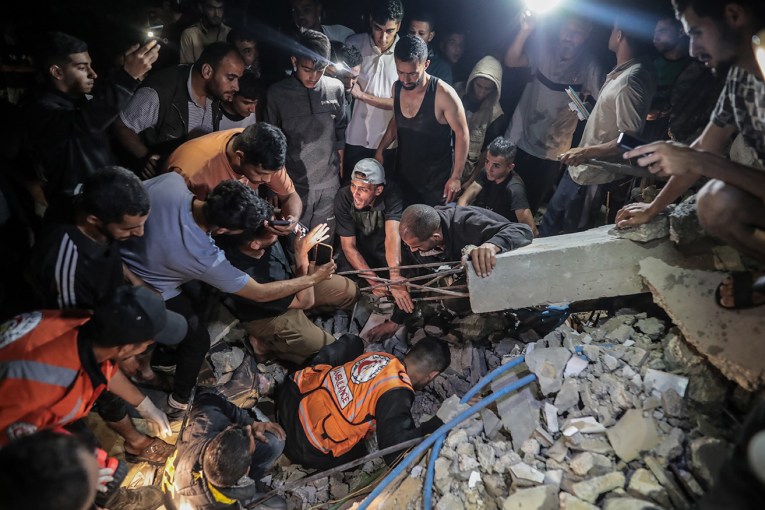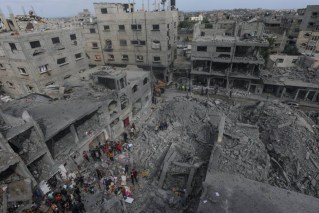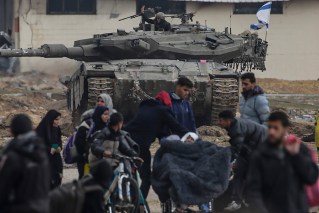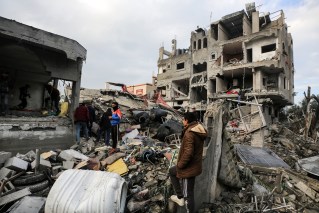Israel will make its own decisions, PM says
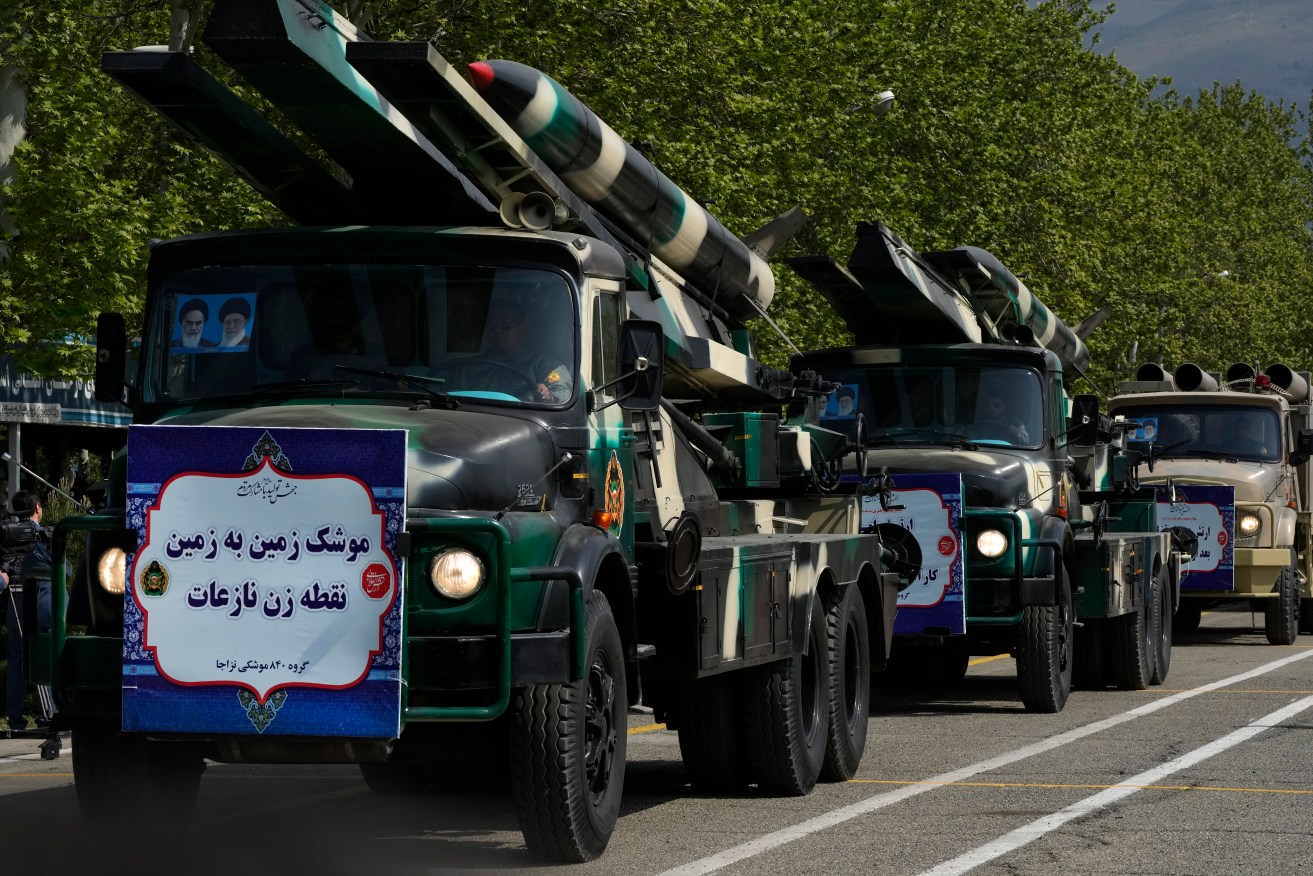
Missiles are carried on trucks during Army Day parade at a military base in northern Tehran, Iran, Wednesday, April 17, 2024. In the parade, President Ebrahim Raisi warned that the "tiniest invasion" by Israel would bring a "massive and harsh" response, as the region braces for potential Israeli retaliation after Iran's attack over the weekend. The banner on the truck reads in Farsi: "Surface-to-surface Nazeat precision missile." (AP Photo/Vahid Salemi) Photo: AAP
Israel will make its own decisions about how to defend itself, Prime Minister Benjamin Netanyahu says, as its allies pleaded for restraint in responding to a volley of attacks from Iran.
The United States, European Union and G7 group of industrialised countries all announced plans to consider tighter sanctions on Iran, seen as aimed at mollifying Israel and persuading it to rein in its retaliation for the first ever direct Iranian strikes after decades of confrontation by proxy.
Netanyahu met the German and United Kingdom foreign ministers, who both travelled to Israel as part of a co-ordinated push to keep confrontation between Israel and Iran from escalating into a regional conflict fuelled by the Gaza war.
Tweet from @IsraeliPM
Netanyahu’s office said he thanked David Cameron and Annalena Baerbock for their support while telling them: “I want to make it clear – we will make our own decisions, and the state of Israel will do everything necessary to defend itself”.
Earlier, Cameron said it was now apparent Israel planned to retaliate for the Iranian missile and drone strikes, which Iran launched on Saturday in response to a presumed Israeli air strike that killed military officers at its embassy in Syria.
Baerbock said escalation “would serve no one, not Israel’s security, not the many dozens of hostages still in the hands of Hamas, not the suffering population of Gaza, not the many people in Iran who are themselves suffering under the regime, and not the third countries in the region who simply want to live in peace”.
More than six months into the Gaza war between Israel and the Iran-backed Palestinian militant group Hamas that has seen flare-ups across the Middle East, diplomats are searching for a way to avert direct battle between Israel and Iran.
The Iranian missiles and drones launched on Saturday were mostly shot down by Israel and its allies and caused no deaths.
But Israel says it must retaliate to preserve the credibility of its deterrents.
Iran says it considers the matter closed but will retaliate again if Israel does.
The United States says it is planning to impose new sanctions targeting Iran’s missile and drone program in coming days and expects its allies will follow suit.
EU leaders are due to discuss sanctions at a summit in Brussels, and sanctions are also on the agenda at G7 talks in Italy.
—AAP
